16, February 2019
Southern Cameroons Crisis: The UN set to move into Cameroon 0
For more than two years, Southern Cameroonians have been calling on the UN and other global organizations to come to their rescue, but their plea seemed to have fallen on deaf ears. The world’s silence has made many Southern Cameroonians to think that they have been left to their own devices. They argue that the world is either ignoring them or does not consider their issue as important as other issues that have earned the UN’s attention.
But the UN and the world are not ignoring the people of Southern Cameroons who have been marginalized and discriminated against for more than five decades. The UN is a slow and expensive machine to run because of the way it was set up after the Second World War and it has protocols it has to follow before coming with a resolution to deploy its staff or troops.
It is easier for the UN to deploy a skeleton staff than to deploy troops as it depends on its member countries for troops. In many cases, it has to negotiate with the country’s government and for more than two years the Yaounde government has turned down all appeals by the international community for external mediation or intervention.
For some time now, many UN specialized agencies have been seeking to set foot in Cameroon, but their efforts have met with government refusal. The government is wary of the UN coming into the country as that might reduce its ability to falsify information on the reality on the ground. The presence of UN bodies in the country might also make it hard for the government to continue with its killing spree.
However, the Red Cross, the World Food Program, UNICEF, Doctors without Borders, etc are already operating on the ground to provide humanitarian assistance, though their efforts are being hampered by government decisions and gimmicks.
Indeed, to circumvent government obstruction, Cameroon has been placed under the cluster category which implies the global body no longer needs the government’s permission to intervene. Clusters are groups of humanitarian organizations, both UN and non-UN, in each of the main sectors of humanitarian action. They are designed by the Inter-Agency Standing Committee (IASC) and have clear responsibility for coordination. This partially explains why the government has stepped up its military operations in the two English-speaking regions of the country in recent days.
With many UN bodies on the ground now, the right information is heading to Washington, Ottawa, London and New York and this is no good news to the Biya regime that has worked hard to deceive foreign governments that it has been fighting a bunch of terrorists who are intent on destabilizing the entire country.
The Yaounde government has employed many public relations firms to spread its gospel of falsehood in Western capitals and this has been one reason why the international community has been slow at having a good understanding of the real situation that is playing out in the country’s Northwest and Southwest regions.
The Yaounde government has always insisted that with limited foreign assistance, it will be capable of rolling back the “terrorists” and the world has believed this story for more than two years. But the Yaounde government’s refusal and insistence that it will handle the problem without external help are gradually unraveling as the beleaguered government is slowly running out of financial options.
While the French are still propping the Yaounde government, many of the country’s traditional partners and donors have finally come to terms with the fact that it will be hard conducting business with a regime that does not see the need for dialogue and democracy as key factors in economic development.
The government is out of cash and it is seeking ways of replenishing its coffers. The World Bank, the African Development Bank and the International Monetary Fund are currently withholding millions in loans and grants from the Yaounde government. Many projects have already been approved for financing in the two English-speaking regions of the country, but the hostilities in the region make it hard to implement those projects.
The ring road in the Northwest region has already been approved for financing by the African Development Bank and the World Bank, but the two multilateral development finance institutions have withheld the money until hostilities stop in the region.
Both institutions have urged the government to restore peace in the country if it wants to continue benefiting from concessional resources raised from global capital markets. Like the United States, Canada and Britain, multilateral institutions are urging the government to grant the United Nations unfettered access to the regions where the fighting is taking place so that humanitarian assistance can reach those in need.
As usual, Canada is using its leadership role in global politics to call for multilateral action that will lead to a comprehensive and inclusive dialogue that will deal with all the issues that have resulted in the conflict. This has given the United Nations more power to start thinking of drafting a resolution that will enable it to deploy both troops and staff in the two English-speaking regions of the country.
A source close to the United Nations in New York, which has elected anonymity, has hinted that the days ahead will lead to the drafting of a UN resolution that will urge members to contribute troops for peace-keeping purposes in Cameroon.
Last week, the UN Secretary General met with Cameroon’s Prime Minister, Dion Ngute, in Addis Ababa, on the sidelines of the Heads of State summit, where they discussed the deteriorating humanitarian situation in the country. The UN Secretary General urged the government of Cameroon to take the right steps to restore peace to the country. Mr. Dion Ngute, for his part, assured the UN Secretary General of the government willingness and determination to restore peace in the coming days.
But events over the last couple of days have proven that the Yaounde government is not up to the task. Its determination to win the war by military means is escalating things and this has resulted in the deaths of thousands of Cameroonians, a situation that has caused the international community to hold that external mediation is necessary, a point underscored by our source at the United Nations headquarters in New York.
“I think the government of Cameroon is out of steam. It has continuously refused appeals by the United Nations for external intervention and mediation of the conflict in the two English-speaking regions, but seeing the way things are unfolding, the UN has to step in to play a key role. The country is down financially, and many development projects have been put off. This is not good for the country’s long-term economic development,” the source said.
“The government cannot win a military victory in the two English-speaking regions of the country. The fighters have proven that it is hard to put an end to the conflict without addressing the root cause of the problem. After two years, I think it is time to think of other options. The military option is a disaster and it will only make things worse if the government continues to hold that it is the best option. Many lives have been lost and there is nothing to show for the money spent and lives lost,” our source regretted.
“With pressure coming especially from the United States and Canada in the United Nations, it is obvious that a peace-keeping force will be heading to Cameroon in the days ahead. Our specialized agencies are already on the ground, though on a small scale, but with pressure mounting and multilateral institutions also calling for an end to hostilities, the government of Cameroon is going to cave in anytime, soon,” he stressed.
“It is true that the Cameroon situation is challenging as the fighting is taking place in all towns and villages in the two regions at the same time, but UN officials are already brainstorming on how to end the hostilities first, as there cannot be any effective humanitarian operations if the hostilities are still going on. UN diplomats are working the phones to convince the government that an inclusive dialogue will the best way out of the crisis, although the government is still reluctant to accept UN proposals,” our source revealed.
Meanwhile, on the ground in Bamenda and Buea, it is proving challenging for the UN to find the proper infrastructure for its operations. The two regions are bereft of proper housing and office building which will accommodate UN staff and their offices.
In Buea, in particular, it is challenging to find strategically located story buildings that will enable the global body to conduct its operations confidently and professionally. Besides physical infrastructure, Internet connection and telecommunication facilities in both regions are unreliable, a UN source in Buea said.
“We have been looking for proper accommodation in Buea and Bamenda, but it is a little challenging. We need accommodation and office space that will not expose our staff to any danger in the event of any hostilities between the two warring factions,” our source said.
Meanwhile, as the fighting rages on, the country’s economy continues to suffer. The country’s seaport is witnessing a huge business shortage, especially as some countries like the Central African Republic and Chad have opted to use other seaports in the region.
For more than two years, the country has not been receiving revenues from the customs and border posts that were located in the English-speaking regions. Ekok, Otu and other border posts have been abandoned as the conflict escalates and this is a huge financial blow to a cash-strapped government.
If the UN does not step in, the country will continue its relentless descend to financial hell and it will be challenging to disarm the fighters who do not trust the government. Many diplomats around the world hold that only the UN will be able to do the job that the country’s disarmament commission has been assigned, as English-speaking Cameroonians, especially the fighters do not trust the government.
The news of the arrival of the UN has been welcomed by many people in the two English-speaking regions of the country and many are looking forward to the coming of the global body which will help them live a life without gunshots and maybe create a few jobs that will help reboot the economies of the two regions.
By Kingsley Betek in Yaounde, Irene Nanyongo in North America and Soter Tarh Agbaw-Ebai in the United Kingdom







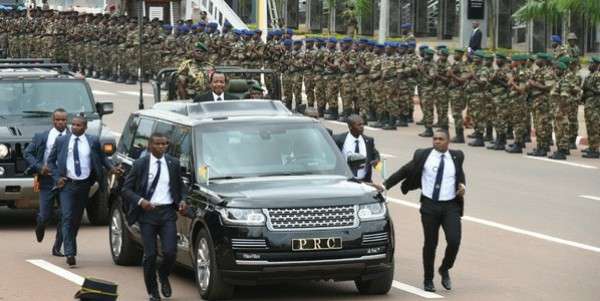
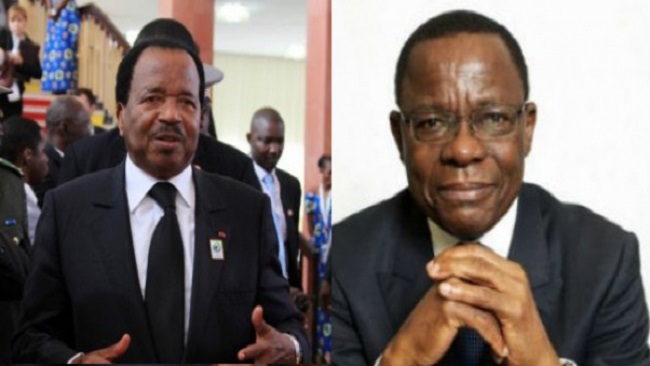
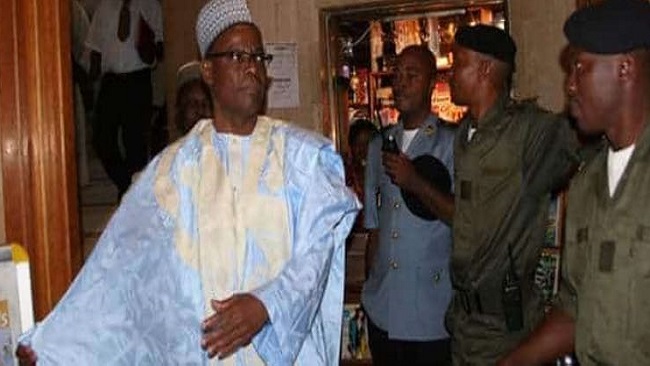
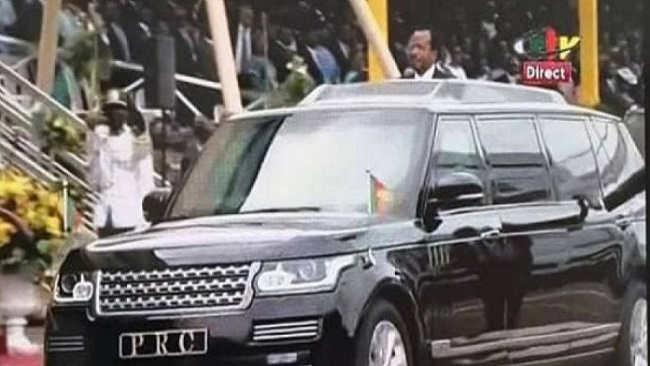
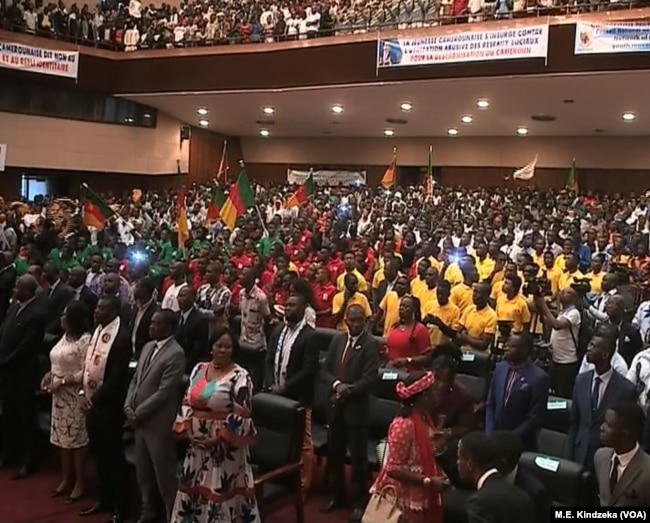
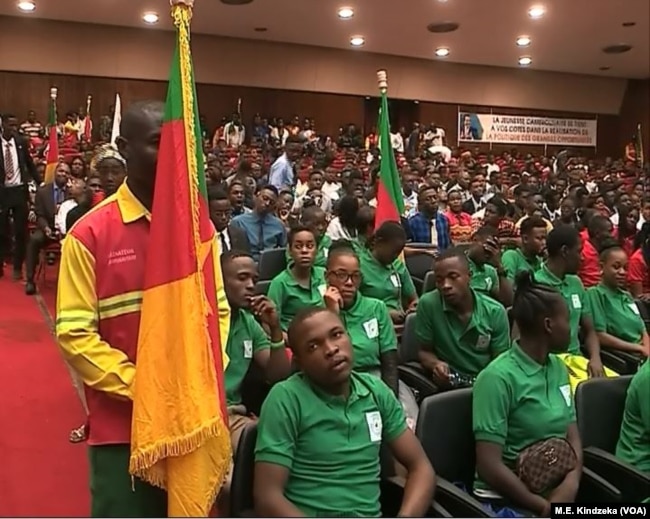


















16, February 2019
Southern Cameroons War: Church is on front line of attacks 0
Attacks on clergy are increasing in the anglophone areas of Cameroon, as tensions rise between English-speaking separatists and the French-speaking government. Bishop Michael Bibi of Bamenda in anglophone south-west Cameroon told Catholic charity Aid to the Church in Need that the spiralling conflict between separatist groups and the francophone central government is putting Church workers at risk.
He said: “The Church is on the front line. A priest and a seminarian have both been murdered in the anglophone region. In the case of the latter it was a deliberate execution, staged in front of his church in the presence of the parishioners.”
Nineteen-year-old seminarian Akiata Gerard Anjiangwe was killed by soldiers on 4 October 2018 outside St Therese’s Church in Bamessing village, near Ndop, northwest Cameroon.
The bishop added: “Sadly, these two are not simply isolated cases. I receive alarming news from many priests and religious who have been shot at, or kidnapped and ransomed. I myself have been arrested, but they let me go again after a few hours.”
Bishop Bibi told ACN that, despite renewing its efforts to promote dialogue between separatists and the government, the Church is accused by both parties of taking sides.
He said: “We tell the young people to stay in school and not join the militias, that it will lead to nothing – and so the militias accuse us of playing the government’s game for them.
“But we also denounce the actions of the government army and call for the region to be demilitarised – and so all of a sudden we are accused by the authorities of siding with the rebels.
“The truth we speak is not welcome in the midst of this fratricidal conflict. The truth is that both sides are involved in the killing and are only adding violence to violence.”
He added: “Thanks be to God, the Cameroonian people have a strong faith… What is needed now is for our political leaders to be likewise illuminated by this faith.”
Requesting support for the country, Bishop Bibi said: “We need the prayers of ACN and we also need practical help for the victims of the conflict in the anglophone region, in line with the words of Jesus: ‘I was hungry, and you fed me, naked, and you clothed me.'”
Independent Catholic News